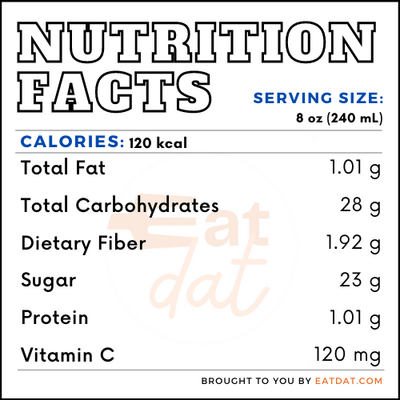
Acai Berry Juice
What is Acai Berry Juice?
Açaí berry juice is the juice extracted from the fruit of the açaí palm tree. Açaí berries are about an inch in size with a reddish purple hue and yellow flesh inside. They are considered a superfood and are included in many health supplements. Açaí berries and their juice are also used in the cosmetic industry due to the high level of antioxidants contained in them.
- This fruit has long been a staple food among the tribes of the Amazon rainforest.
- It is usually eaten in the form of juices, or by soaking them in water and then mashing them into a paste.
The most popular açaí berry supplements include:
- Puritan’s Pride Açaí
- Natrol Açaí Açaí
- Nature’s Way Açaí
- NOW Foods Açaí Powder
- Nature’s Bounty Açaí
- Solgar Açaí Extract
- Doctor’s Best Açaí
- Nature’s Plus Açaí
- Planetary Herbals Full Spectrum Açaí
Origin of acai berry juice
Açaí berries are native to the rainforests of Central and South America. It has been a very popular food among the Amazon rainforest tribes and South American cultures for several centuries. The acai berry was discovered to have antioxidant properties, as well as to increase energy. It quickly became famous around the world for its health benefits. Today, it has become a large industry in many South American countries and açaí berries and juices are marketed in different forms.
Nutrition
An 8 ounce (240 mL) serving of acai berry juice contains:

Açaí berries contain amino acids, calcium, sterols, fiber, and fatty acids. They are also rich in chromium, zinc, iron, copper, manganese, magnesium, potassium, and phosphorus. The fruit contains powerful antioxidant and anti-inflammatory properties. They also possess hypocholesterolemic properties, making it a useful tool for controlling cholesterol.
Consumption of acai berry juice can help in improving the blood lipid profile, as well. Research has also shown that açaí berry juice can help in reducing blood sugar levels. However, consumption of the açaí berry fruit can also lead to Chagas disease, which is transmitted by bloodsucking triatomine insects. This can be prevented by purchasing processed açaí products, such as açaí berry juice.
Commercial production
Açaí berry trees require a warm climate to flourish. It has been accorded protected cultivation status due to its environmental impact. However, açaí berries do not last long fresh and must be consumed within two days. Hence, it is often made into juices, powders, or pastes, in order to increase shelf life before being shipped to different countries.
While it can be prepared from pastes or powders, it’s also often made from the fresh fruit. Açaí berry juice is prepared by just blending the berries in a blender. It may be mixed with other fruits for some added taste.
Acai berry juice recipes
Açaí berries and their juice can be used in different recipes. These energy and nutrient rich dishes can be easily made at home. Here are a few recipes:
- Açaí Berry Juice
- Açaí Berry Smoothie
- Açaí Bowl
- Açaí Berry Sorbet
- Peanut Butter and Jelly Açaí Bowl
- Açaí Ice Cream
FDA regulations
In the US, açaí berry juice is considered as a dietary supplement. The National Center for Complementary and Integrative Health (NIH) has clarified that there are no proven medical benefits of açaí berry juice. The Federal Trade Commission has declared the marketing of this product for weight loss as illegal.
References
Acai – What Is It and Where Does It Come From?” International Business Times, International Business Times, 16 Apr. 2019, www.ibtimes.com/acai-what-it-where-does-it-come-183593.
Morris Vanvalkenburg, Acai Berry Cultivation, Brief Encounters
http://www.brief-encounters.org.uk/acai-berry-cultivation/
Sadowska-Krępa, E et al. “Effects of supplementation with acai (Euterpe oleracea Mart.) berry-based juice blend on the blood antioxidant defence capacity and lipid profile in junior hurdlers. A pilot study.” Biology of sport vol. 32,2 (2015): 161-8. doi:10.5604/20831862.1144419
https://www.ncbi.nlm.nih.gov/pmc/articles/PMC4447763/
Udani, Jay K et al. “Effects of Açai (Euterpe oleracea Mart.) berry preparation on metabolic parameters in a healthy overweight population: a pilot study.” Nutrition journal vol. 10 45. 12 May. 2011, doi:10.1186/1475-2891-10-45
https://www.ncbi.nlm.nih.gov/pmc/articles/PMC3118329/
